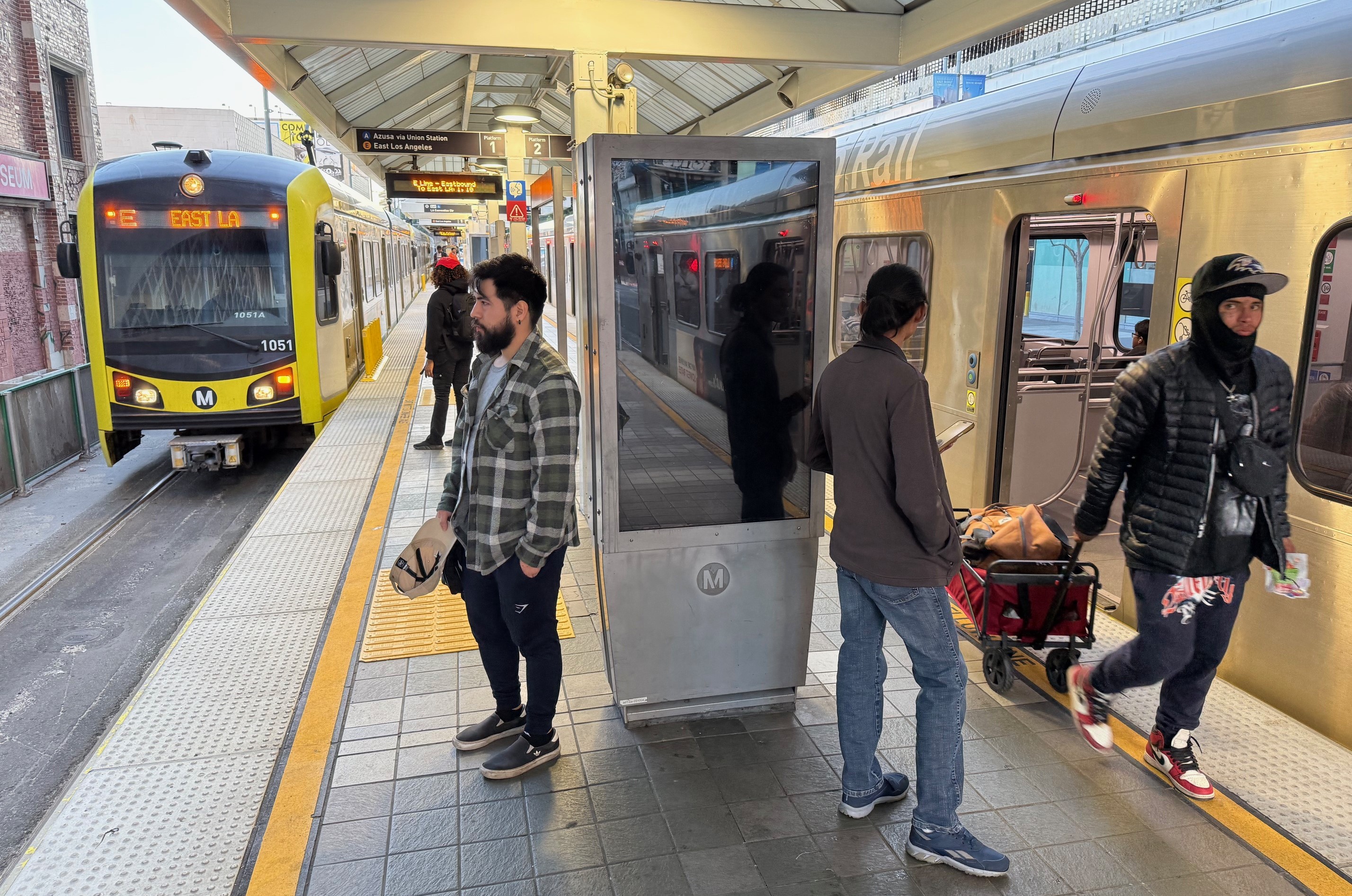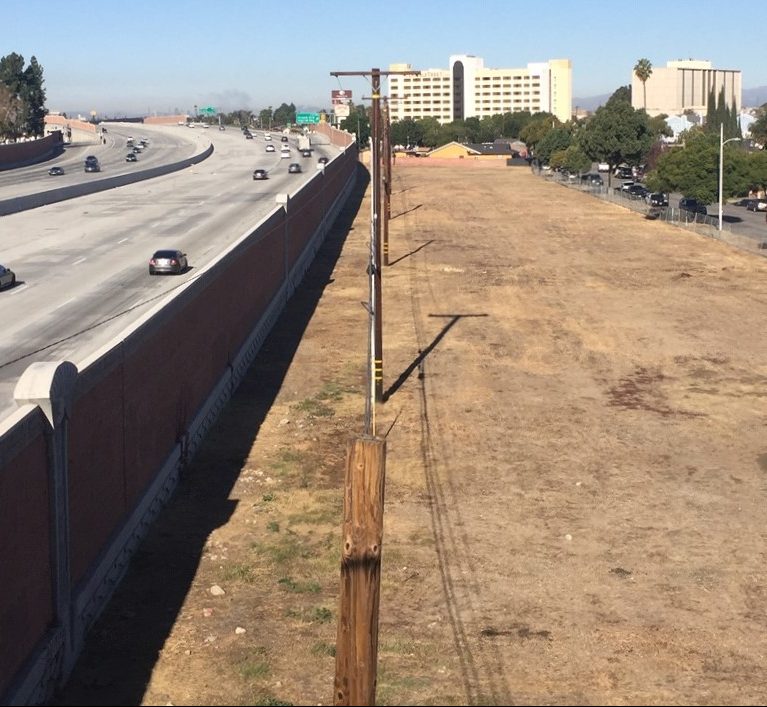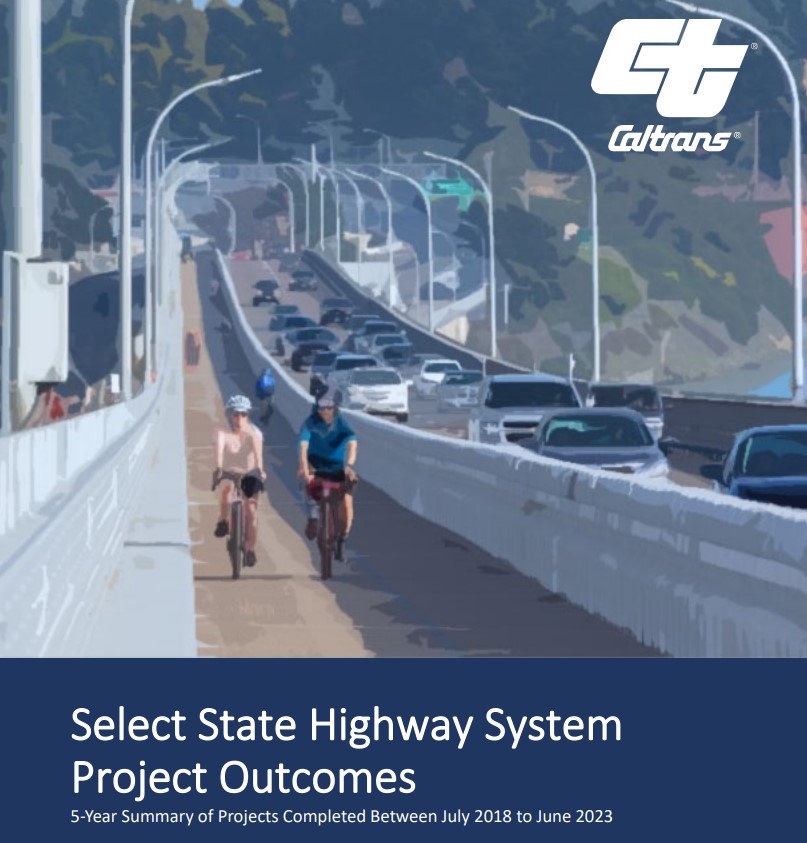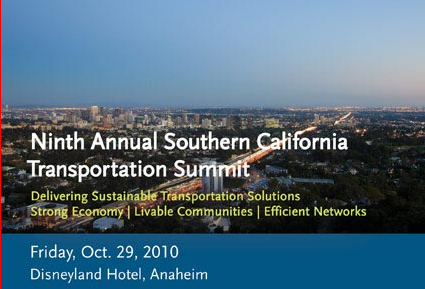
Gloria Ohland's overview of the recently held 9th Annual Southern California Transportation Summit certainly provides a neat snapshot of the livability aspects of the event. But a lot else was going on, which is no surprise for such a large event, and I have some observations of my own from attending.
The great irony is while Ohland speaks of "the real goal of transportation in the 21st century is accessibility" that the venue for the conference (the Disneyland Hotel) was one of the more transit inaccessible locations I have ever encountered. Neither OCTA public transit nor the local Anaheim resort shuttles provide service anywhere near the location. So I ended up missing the first hour of the conference while walking from the bus stop on Harbor on the far side of the park property. This entailed walking along the buffer between Disneyland and California Adventure where Disney has created a linear outdoor shopping zone known as Downtown Disney, consisting of chain stores and eateries (decidedly upscale).
When I finally made it to the Hotel Conference Center as I anticipated I had missed all the gasbag introductions by dignitaries. Also I had missed comments by Adrian Moore of the Reason Foundation but I was assured later by fellow attendees it had been nothing but overblown talk of new freeways and tunneling, no surprise from someone representing that "bastion of libertarianism."
The last Opening General Session speaker was Peter Buffa of the OCTA Board speaking on How Transportation is Putting America Back to Work. He noted contrary to the general impression only a fraction of the stimulus bill was devoted to transportation and infrastructure. Spreading the goodies to get the bill passed meant it included monies for various things (like broadband for rural areas) that as a consequence had the stimulus fall short of the level of job creation that it could have produced if the funding had been more targeted. Buffa also urged progress on speeding up the process by which project selection and construction occurs -- not to reduce environmental protections but eliminate unnecessary steps for approval that are the real culprits that make the process so slow.
Now we dispersed for the morning break-out sessions. I glanced at the program and decided to attend track one on funding. This was devoted to the future of federal transportation funding with some true heavy hitter stakeholders as panelists. The moderator was Mary Peters, former U.S. Transportation Secretary.
In her introductory remarks Peters stressed that the public doesn't perceive the importance of transportation and that advocates often exist in an echo chamber in which we perceive the significance of our issue but don't realize that opinion isn't widely held.
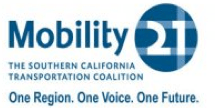
The first panelist was Joel Szabat, Deputy Assistance Secretary for Transportation Policy at the U.S. Dept. of Transportation. He described the status of federal transportation funding reauthorization, with each house of Congress creating their own distinct bi-partisan bill with neither all that far along in the process. Szabat noted that there is no support among any Senators or Representatives for an increase in the federal gas tax but there is some talk regarding other funding streams like public private partnerships. The dilemma is where can the additional funding be found to meet the projected needs for infrastructure maintenance and expansion?
The second panelist was Janet F. Kavinoky, director of transportation infrastructure at the U.S. Chamber of Commerce. Her key point was the critical need for Presidential leadership to carry forward a funding bill before undertaking the process of dealing with the Congress. "We must shout from the rooftops and get the public involved" she stated with a bit of zeal.
The last panelist was Kathy Ruffalo of Ruffalo and Associates. She lamented the continuing delay in passing a new bill hurts local firms, delays projects being commenced, etc. She also warned advocates should prepare for the worse as to the new bill with tolls as an emphasis and such. Like Kavinoky she exhorted the audience to engage with the media, tell the story of the local projects that a new bill could make possible--be specific and avoid using statistics when describing job creation.
Now Peters started peppering the panelists with questions submitted by the audience. Among the comments made:
- Szabat revealed that rural areas are worried at the prospect of the infrastructure bank being touted by the 30 in 10 L.A. advocates and others. They feel it would favor urban projects and they couldn't compete effectively for the funding it would dole out.
- Kavinoky shared that the shape of funding bills reflect differences that are regional along with competition between modes.
- Ruffalo worried at the continued use of general fund monies to shore up the transportation trust fund; in her opinion transportation can't compete with other needs (military, medicare) on a long term basis for such funding -- this is why dedicated funding sources like the gas tax are important.
- Kavinoky following up on Buffa's comments on the stimulus noted that in some ways transportation funding being included now gave politicos an excuse to defer investment in infrastructure on the erroneous basis that the stimulus already solved our deferred maintenance and other problems.
- Ruffalo agreed pork barrel projects like the infamous "bridge to nowhere" creates a perception that money spent on transportation will be wasted.
- Szabat discussed earmarks, including the political trick often engaged in by politicians of holding press events to herald their getting an earmark for a project when in fact the earmark provides only a fraction of the cost of the project and compels the local officials to reallocate resources to pay for the rest, allowing priorities to be made by earmarks instead of a rational process. Also in many cases despite the big noise the earmark initially receives often local officials decide other projects deserve to be funded instead and the earmark ends up spending years fallow and un-used.
In summing up Peters stated the three key points made were:
- educate the public about transportation funding
- communicate the effect of short term funding bill extensions
- in all advocacy focus on the local picture
Szabat added one last important idea: that the audience advocate for the California Congressional Delegation to become united instead of scattershot.
During lunch a number of awards were given out. Also the inspirational keynote by the Zambikes visionaries was delivered that Ohland described. Plus Janes Kavinoky from the U.S. Chamber made comments on the link of economic growth and infrastructure investments keyed to the recently released national Transportation Performance Index
The afternoon funding breakout was on state of California issues.
Bonnie Lowenthal, chair of the Assembly Transportation Committee spoke first noting the state's role in transportation has been diminished by SB 45 and the self help trend among counties.
Jim Earp of the California Alliance for Jobs noted as others had previously that insufficent funds exist to meet the needs. Also that project funding is generally drawn from multiple sources which make it unstable if just one component is delayed or not awarded.
Josh Shaw of the California Transit Association proclaimed "Fight! Fight! Fight!" is seeking support of those present of the industry sponosored measure Proposition 22 that would protect transit funding.
Bill Dorey, former CEO of Granite Construction, spoke of his discovery that resistance to gas tax hikes can be overcome even among vehement critics such as AAA and the trucking industry if they can be assured the revenue won't be diverted to general fund purposes but would instead be invested in improving infrastructure. He noted from talking to people he learned the widely held view is adding a penny per gallon to the gas tax would cost people on average about $200 a year. In fact it is only $5.54 a year. Also at some point the oil companies given supply and demand will boost the price when they can do so at which point that additional amount people spend on gas ends up going to oil company profits whereas if instead the price increase was due to a gas tax increase those funds could be used for infrastructure needs that economically benefit society.
Earp stated it is obvious more private funds need to be added to the mix of transportation funding, via private-public partnerships, etc. He reiterated if people can be made to understand the beneficial outcomes of transportation investments they will support increased funding.
- The panel summed up three key points:
- Vote yes on Prop 22
- California stakeholders must work together
increasing the state gas tax can be seen as motivating environmentally beneficial behavior changes such as less driving and more use of alternative transportation (bikes, walking)
In the Closing General Session we viewed a pre-recorded message of support from Oregon Congressman Earl Blumenauer, a tireless champion of livability issues (and as usual he was wearing a bike lapel pin).
The final panel was a roundtable on What's Ahead for Southern California, with the leaders of the six county transportation commissions participating:
- Deborah Robinson BarmackExecutive Director, San Bernardino Associated Governments
- Gary GallegosExecutive Director, San Diego Association of Governments
- Will KemptonChief Executive Officer, Orange County Transportation Authority
- Darren KettleExecutive Director, Ventura County Transportation Commission
- Arthur T. LeahyChief Executive Officer, Los Angeles County Metropolitan Transportation Authority
- Anne MayerExecutive Director, Riverside County Transportation Commission
Gallegos made an astonishing admission--his agency has actually accelerated its capital spending during the recession. This is because while revenues have declined by 20%, construction costs have plunged by 35% and SANDAG had found borrowing is currently available at historically low interest rates.
- Kempton noted OCTA's reaction to the dire funding situation was to focus on being more efficient and cutting service, which their Board didn't shirk from doing despite it being unpopular.
- Leahy noted the state's current precarious situation has meant delays in the issuances of transportation capital funding bonds enacted by the voters by Prop 1B. The delay in the revenue stream is a problem as the state meanwhile presses agencies regarding new SB 375 mandates.
- Kempton noted it is imperative to prove tax payer funds are being handled responsibly with no waste or fraud to reassure the public.
- Kettle followed-up noting the recent scandal in Bell currently makes trust hard to establish.
- Leahy as a final comment urged people read the book Bold Endeavors by Felix Rohatayn.
And with that, the event ended (afterward I lucked out and scored a brief hop on a shuttle dropping me off near my hotel so I avoided a repeat of the long walk). If nothing else I got a fuller picture of just how dire the funding situation is at the state and federal level. Oh boy, and how!
